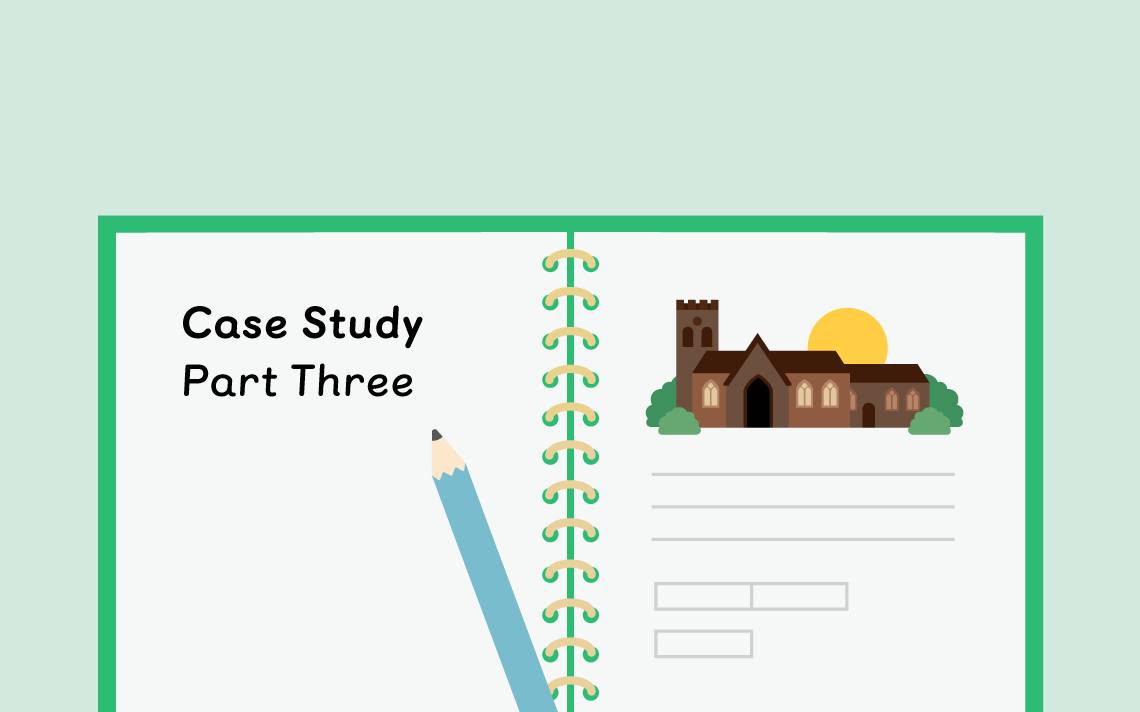A maths mastery success story with St. Bridget’s Primary School Part III
Editor’s Note:
The following is an excerpt from an interview that took place in May, 2022 via videoconference with Headteacher Neil Le Feuvre, Assistant Headteacher Ryan Neal and Maths Lead Rosie Ross at St. Bridget’s C of E Primary in Wirral, UK. The interview was conducted by Chris Fournier, senior copywriter at Maths — No Problem!
This is the third and final part of our blog series based on the interview. In Part III, Headteacher Neil Le Feurve answers our questions about creating a successful mastery programme from a headteacher’s perspective.
“The thing you can’t quantify is the children enjoying their maths lessons. As a leader of the school and an educator it is amazing when you go into a maths lesson and you see that children are actually approaching it energetically, that they’re not switched off.”
– Neil Le Feuvre
Q1: Over the six years you’ve been using the programme, how would you say it has changed your school?
Maths mastery is now normalised in our school. It’s just how we teach maths. Some of the strongest changes from the past are the way the children are able to process their thoughts and journal. They can express their ideas which helps them feel more confident in tackling stage two and three problems.
From a teacher’s perspective, I would say it’s the planning that’s supplied by Maths — No Problem! They are able to use that as their start and then build their understanding, gradually gaining more and more confidence over time. They can look at and review some of the ideas that Dr Yeap Ban Har shared with us. Teachers can also plan ahead for where the bear pits are in a lesson to prepare for a possible struggling student.
Q2: Have you noticed any quantitative data changes over time?
What we’d noticed was that the difference between girls and boys and some of our other groups had reduced. And we identified that as being something that derived from when we’ve been using Maths — No Problem!
The data in our school still remains strong and, in many cases, is improving. Insights has been helpful in identifying those key areas where it’s less strong. We are able to use the data from Insights to analyse the situation and go from there.
However, the thing you can’t quantify is the children enjoying their maths lessons. As a leader of the school and an educator, it is amazing when you go into a maths lesson and you see that children are actually approaching it energetically, that they’re not switched off. Naturally, this leads to a more positive engagement, which leads to a more positive understanding and thoughtfulness towards maths.
Transform Your Maths Assessment
Insights — our online assessment tool — gives you instant, powerful data to identify gaps and improve results.

Q3: What have you noticed from other schools who have tried maths mastery?
A challenge for some schools is when, a few years down the line, there’s maybe been a change of staff, the mastery approach hasn’t been revisited, or some of the training has dropped off. Maths mastery needs to be constantly revisited. You can’t just go year one, year two, it’s done, therefore we’re okay. It actually needs to be revisited and built on every year. The danger is when you are approaching it short term and not seeing it as a long term goal.
Another thing that is interesting is the cost. When people raise that, I say, “It probably costs you more to put maths right if it becomes a significant problem.” It’s an investment to get it right early on so you don’t have to pay thousands for consultants to come back in later. And you have a much more enjoyable time in school.
Q4: What advice would you give to other schools taking on the mastery approach?
It requires a certain level of trust. I remember one of the first weeks that Year 1 attempted to journal. I went into one of the classes out of curiosity and noticed the teacher was looking very pale. It didn’t look like how we’d dreamt it would look like, and it was very easy at those points to panic. But when you look at the research, you have faith in the research and you say, “No, we will get there, and don’t worry.”
Also, if there’s a change of personnel and they’ve had no Maths — No Problem! training, I would encourage other headteachers to think about how they will get them up to speed as quickly as possible. If they’re a key person and they don’t like the programme, the headteacher might notice the mastery approach become less secure. Having a constant watch over the mastery approach and protecting it, would be my advice.
We also often revisit our practice and I recommend other schools to do this too. Rosie and Ryan will go into lessons and have a look at what’s going on, not to judge a lesson, but to work alongside colleagues in more of a coaching fashion. That has transformed our programme.
It is challenging sometimes. You’ve got cost pressures, standards don’t look so good, the Year 5 and Year 6 teachers may be shaking their heads going, “It’s not quite working as we want it to work.” And that’s when it can drop off very quickly. But we know that if you can develop that culture over time, standards are at least maintained, the enjoyment of maths is promoted, children above all see themselves as mathematicians. Whether they are good mathematicians or ones that find maths a little bit more challenging, they see themselves as mathematicians, which is transformational.
